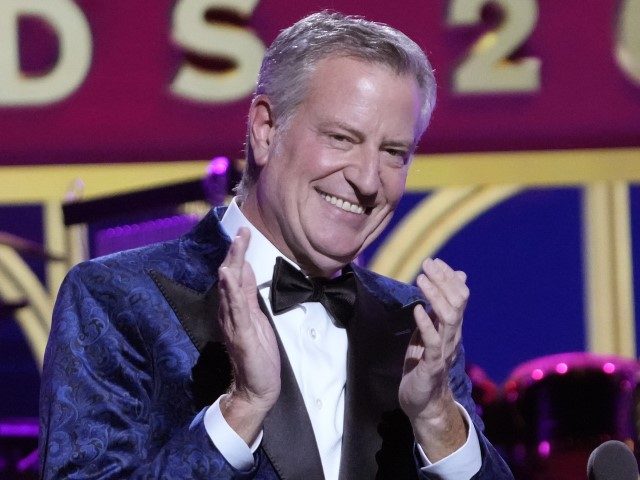Former New York City mayor Bill de Blasio said he no longer supports the American Israel Public Affairs Committee (AIPAC) over what he called its “unjustified attack” against fellow progressive Democrat, Nina Turner.
The ex-mayor, who is running House of Representatives in the newly created District 10, further said he wouldn’t accept the pro-Israel’s backing if asked.
“I am not seeking their endorsement and would not accept it even if it were offered,” he told a progressive forum.
According to the former mayor, AIPAC had changed in a way that was “unacceptable.”
Former state senator and friend of de Blasio, Nina Turner, was slighted when the pro-Israel lobby backed her opponent in a Democratic primary in Cleveland.
Turner has expressed support for a Jewish progressive group that claims Israel is guilty of “apartheid.”
“She’s an incredibly important progressive leader,” de Blasio said of Turner
De Blasio said the attacks against her were “horribly unjustified,” and “deprived our nation of someone who could have been a huge difference maker in terms of our progressive movement.”
De Blasio went on to say he supports the two-state solution for solving the Israel-Palestinian conflict as “the only path forward to peace in the region for both Israeli and Palestinian people to have their own states.”
“I would fight for that, and I would certainly fight against any organization that attacks my fellow progressives,” he said.
Days later, de Blasio attempted to clarify his stance in an effort to shore up support from the 10th District’s sizable Jewish population. He also tried to create distance between Turner’s ideas about aid to Israel and his own.
Speaking to the Jewish Insider, de Blasio said he believed Israel was inherently “a progressive idea.”
“I have a tremendous sense of personal loyalty to the Jewish community. I have a tremendous sense of personal loyalty to the State of Israel and support for the State of Israel. But I also have real personal loyalty to Nina Turner as a friend,” he said. “That doesn’t mean I agree with every statement that she’s made.”
“From my point of view, I know what I believe in,” de Blasio continued. “I believe in supporting Israel and providing the defense support that Israel needs. From my understanding, Nina Turner thinks aid should be conditioned. I disagree with that. I think we have to protect Israel.”
De Blasio insisted he “can simultaneously be a very proud progressive and a very proud supporter of Israel and opponent of BDS,” referring to the boycott movement targeting Israel. “I don’t see any contradiction.”
“I believe Israel is a progressive idea, because it is the expression of that core progressive value of stopping oppression, discrimination, bigotry and violence,” he added. “Israel is a response to two millennia of state-sponsored violence against the Jewish people in multiple continents, and so when you think about that history, and you say, ‘OK, now a homeland is created to address that history,’ that’s inherently progressive. That is, to me, as core to my values as anything I could imagine, and I would like people in that homeland to live in peace, which is why I believe there needs to be a structural solution with a two-state solution.”
The Jewish Insider also reported de Blasio apologized to Jewish leaders last week for singling their community out for violating social distancing protocols at the beginning of the pandemic.
“My support for Israel and opposition to BDS is something I feel profoundly, and it’s very personal,” de Blasio said. “It’s very personal based on relationships I’ve developed and stories I’ve heard and learned from people about their own families. If you spend time in Borough Park, you will spend time with many families who lost members during the Holocaust. I’ve met many, many Holocaust survivors, and it is part of why, to me, the resurgence of antisemitism around the world, I don’t take it idly. I see it as a profound threat, because when you spend time with people who are victims of it in our lifetime, in that recent history, it’s not abstract.”

COMMENTS
Please let us know if you're having issues with commenting.